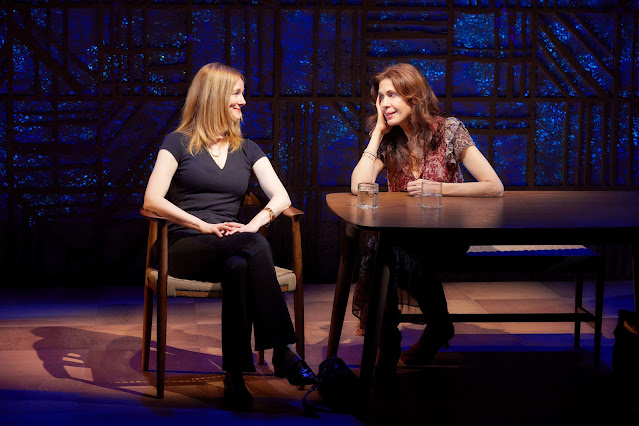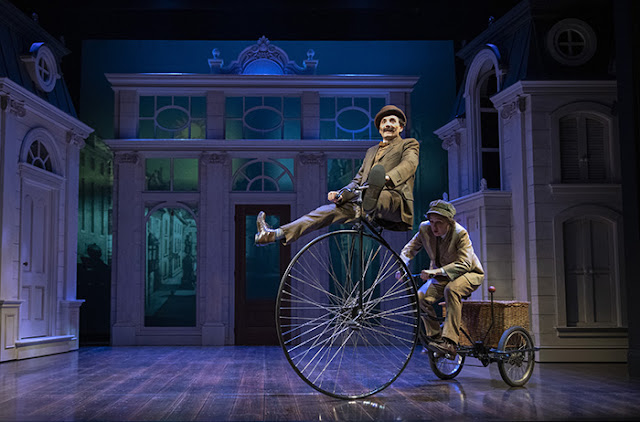 |
| John Lithgow and Grace Gummer in The Columnist |
John Lithgow gives a fine performance as political analyst
Joseph Alsop in David Auburn’s new play
The
Columnist (currently receiving a
Broadway production under the auspices of the Manhattan Theatre Club).
Alsop’s career began in the 1930s but Auburn
focuses on his decline in the sixties, beginning with the KGB’s photographing
him in bed with one of their plants, a young Soviet man (Brian J. Smith), on a
trip to Moscow, through his intensified conservatism during the Vietnam War,
when he turned his syndicated column into an ongoing tirade harassing Lyndon
Johnson for not taking a tough enough stance on the war.
The play locates JFK’s assassination – it
occurs just before intermission – as the moment that turned Alsop bitter and
remote; he had been one of Kennedy’s most enthusiastic supporters (he was sure
Kennedy would find a way to solve all of the problems plaguing America in the
early sixties, including Vietnam and the Cold War) and a close friend.
Auburn balances the deterioration of Alsop’s
journalistic reputation – as his colleagues, including his brother
and one-time collaborator Stewart (Boyd Gaines) and the gifted young war
correspondent David Halberstam (Stephen Kunken), who wins a Pulitzer at thirty,
find his political position increasingly remote and irrelevant – with the
disintegration of his marriage. His
wife is Susan Mary Alsop, a widow and a long-time friend who marries him
knowing that he’s gay but, we learn eventually, hopeful that she can get him to
return her sexual affections. In Auburn’s version of
events, it’s not just her self-delusion that wears away at their marriage but
his increasing emotional unavailability to her while he forges a close
relationship with her daughter Abigail (Grace Gummer). Lithgow’s strongest moments, not
surprisingly, are the ones where Joe lets down his guard and reveals the kind
of feelings he prefers to keep to himself: shame and embarrassment when his Soviet
lover, Andrei, seems hurt at Joe’s suggestion that he was pimped by a friend at
the American Embassy (Andrei is faking it: he was pimped out, though not by the
Embassy); anguish at Kennedy’s death, which he won’t show until Susan Mary and
Abigail have both left the house; shock when, after he and Susan Mary have
separated (messily), Abigail admits to him that she figured out his sexual
orientation long ago and assumes everyone else did too. Another highlight of the performance
is the scene where Joe turns mean after Susan Mary confesses that she’s lived
in hope that his “nature” would change. The
marvelous actress Margaret Colin is cast as Susan Mary, and I wish I’d seen her
play this scene, but at the matinee I attended her understudy, Charlotte Maier,
stepped in, and she was merely serviceable in the role.








.JPG)




